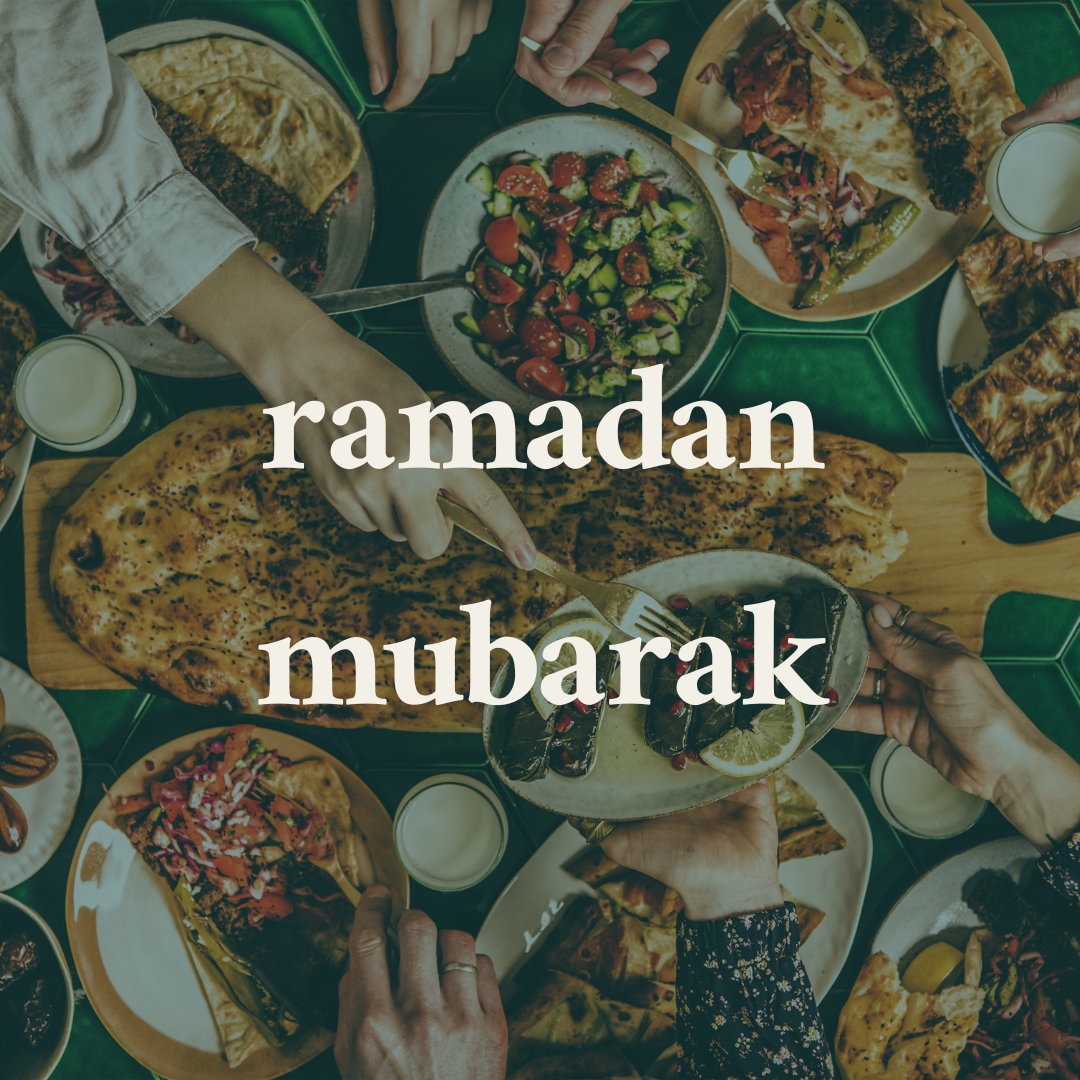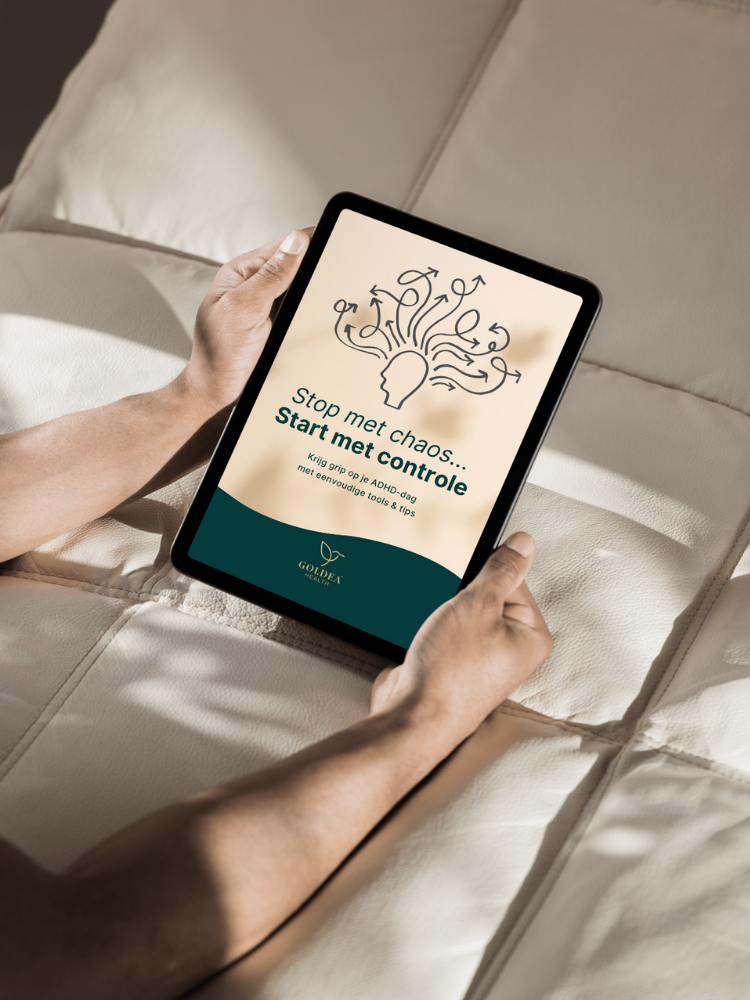Boost Your Ramadan 2024: 12 Powerful Tips for Healthy Fasting
With Ramadan starting on Sunday evening, March 10, 2024, we would like to provide you with valuable information to get through this holy month in a healthy and radiant way. We will address questions such as, what exactly does Ramadan entail, how do you prevent headaches and how do you get through Ramadan healthily?
Discover how to experience this spiritual period in a healthy way in our blog.
Directly to:
- About Ramadan
- Breaking your fast
- Fasting Tips for a Healthy Ramadan
- Summary
About Ramadan:
The start of Ramadan marks an important period in the Islamic calendar. It is a month of fasting, reflection and spiritual growth. But when exactly does Ramadan begin?
Ramadan begins on a specific day of the Islamic calendar, determined by the position of the moon and sun from Saudi Arabia.
This means that the start date varies each year, usually shifting by ten to twelve days.
Ramadan 2024
This year, Ramadan begins on the evening of March 10, with fasting beginning at sunrise on March 11. Ramadan ends with the festival of Eid al-Fitr, which begins on Tuesday, April 9.
Why fast during Ramadan?
Fasting during Ramadan is one of the Five Pillars of Islam, the five most important religious obligations for Muslims. Fasting is a sign of obedience to Allah and a way to achieve spiritual purification.
By participating in Ramadan, one acknowledges their Islamic identity and strengthens their bond with the community. Fasting during Ramadan reminds Muslims of the essence of humility, compassion and gratitude.
In addition to the physical benefits, fasting for 11 to 20 hours can also have a spiritual dimension. Think of: reflection, self-discipline and self-control. By consciously choosing not to eat and drink, you develop a deeper awareness. In relation to food, your body and your spiritual.
Breaking your fast
Let's start at the beginning… Breaking the fast, also known as Iftar, is an important moment during Ramadan.
After a day of fasting, which can usually last between 11 and 20 hours, I can assure you that you are really looking forward to the moment when you can eat and drink again. But how do you do this best?
Did you know: The Prophet Muhammad broke the fast with milk and an odd number of dates.
Tips for breaking:
- Before you start eating , take a moment to become aware of your body and mind. Feel how hungry you are, what you are grateful for, and how your body responds to breaking the fast.
- Drink some water first to hydrate your body after a day of fasting (preferably wait 30 minutes before eating). This helps to prevent dehydration and prepares the digestive system for food intake.
- Choose foods that are nutritious and provide your body with the nutrients it needs after a day of fasting. Think vegetables, fruits, whole grains, lean proteins, and healthy fats.
- Take time to enjoy your meal and eat slowly. Chew your food well and pay attention to the flavors, textures and aromas. This will help promote healthy digestion and leave you feeling satisfied after your meal.
- As you break your fast, be thankful for the food you have and the opportunity to eat. Reflect on the blessings you have and share your gratitude with others.
- Breaking a fast can be a social event , so share your meal with family, friends or community. Eating together strengthens relationships and creates a sense of connection.
Now, you may have trouble not getting enough during the day or maybe you experience headaches. No worries, we have tips for that too!
Fasting Tips for a Healthy Ramadan
-
Avoid Coffee and Alcohol : During Ramadan, it is important to avoid coffee and alcohol as these drinks can cause headaches, especially when your body is fasting.
Instead, opt for hydrating drinks like water, coconut water, or herbal tea to stay hydrated and prevent headaches. -
Moderate your sugar intake : It’s tempting to indulge in sweet treats during Lent, but it’s important to moderate your sugar intake. Too much sugar can cause blood sugar spikes and energy dips.
Instead, opt for natural sweeteners like honey, dates, dark chocolate, or smoothies to satisfy your sweet tooth. - Limit the number of eating moments : Limit the number of eating and drinking moments to a maximum of three per night. Avoid too many snacks to prevent large fluctuations in your blood sugar levels and keep your energy intake spread over these moments. This also helps to keep your digestion in top shape and prevents stomach complaints.
- Avoid heavy meals before bed : Try to avoid heavy, fatty meals right before bed. This can lead to digestive upset and restless sleep. Instead, opt for easily digestible foods such as vegetables, meat or fish, and whole grains to keep your energy up without taxing your digestive system. Additionally, herbs and digestive enzymes (such as: Digestion Complex ) can be helpful for healthy digestion.
- Adequate sleep : Make sure you get enough sleep to give your body the rest it needs to recover and recharge for the next fasting day. Create a restful sleep environment and avoid stimulating activities right before bed. More tips? Read this blog .
- Listen to your body : Don’t be afraid to pause and rest when your body asks for it. During Ramadan, you may experience fatigue and exhaustion due to fasting, so listen to your body’s signals and give yourself the rest you need to recharge.
- Exercise : While we have always encouraged exercise, we advise against excessive physical exertion during Ramadan. Opt for gentle activities such as walking, yoga or stretching to keep your energy up without overexerting yourself (especially for all women!).
- Meal Prep : Consider meal prepping during Ramadan to reduce the stress of cooking and promote healthy eating habits. Plan ahead and make things like a big pot of soup and healthy snacks ahead of time. Preparing meals ahead of time saves you time and energy, and ensures that you always have healthy options on hand when you need them most.
- Eat enough protein and healthy fats : During Ramadan, it is essential to ensure that you are getting enough protein and healthy fats to keep your energy levels up. Protein is essential for muscle repair and growth, while healthy fats help maintain a healthy metabolism and improve nutrient absorption.
- Make sure that each meal contains protein-rich foods: such as chicken, fish, eggs, tofu or legumes, along with healthy fats such as: avocado, nuts, seeds or olive oil. These nutrients will help you feel full and support your energy throughout the day during Ramadan.
- Choose the right supplements : During Ramadan, it’s important to get all the essential nutrients you need. Think multivitamins , vitamin D , and omega-3 . These supplements can help fill in any nutritional gaps and support your overall health during the fast.
Summary
In this blog, we have shared some valuable tips to help you stay radiant and healthy during Ramadan 2024. By consciously choosing healthy foods, staying hydrated and staying active, you can make the most of the blessings of this holy month.
Remember that it is important to take good care of it, especially during this period of spiritual growth and devotion. We are curious to know which of these valuable tips you will apply.
Ramadan Mubarak!
Do you have any questions?
For further guidance and advice we recommend that you contact our orthomolecular therapist, you will receive free and tailor-made advice .
Visit our Instagram page for extra inspiration. Discover healthy recipes, blogs and a wealth of ideas to take your wellbeing to the next level. We love sharing knowledge and tips with you!



